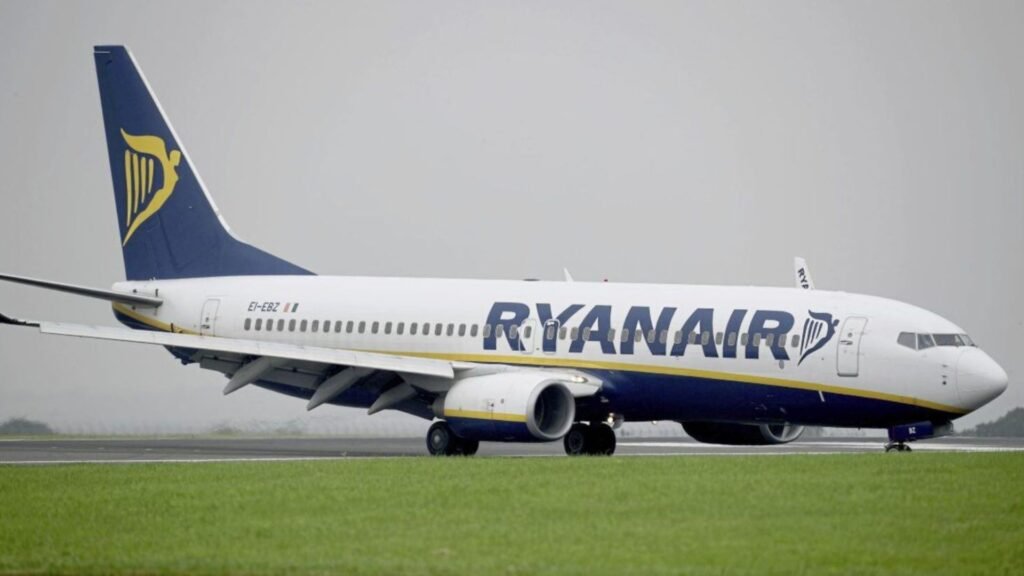The Supreme Court of Justice (STJ) in Portugal has ruled that Ryanair’s 2020 collective dismissal of cabin crew members at its Faro base was legal. This decision overturns an earlier ruling by the Court of Appeal of Évora which marks a significant legal victory for the airline.
Read More About: Demand For Portuguese Housing Market On Islands Increase As More Foreigners Invest
Faro Base Dismissals Case Background

In January 2020, Ryanair dismissed 75 crew members working at the Faro base. These employees were hired through Crewlink which is an Irish staffing agency. Ryanair said the layoffs were necessary because of operational changes which includes fewer planes at the base and delays in receiving new aircraft.
The National Union of Civil Aviation Flight Personnel (SNPVAC) challenged the dismissals. The union argued that Ryanair’s reasons were not valid. It also claimed that the airline treated its workers unfairly and forced them into accepting unfavorable contract changes.
The Supreme Court’s Ruling

The STJ stated in a decision dated November 27, 2024 that the collective dismissal process followed the law. Judge Mário Belo Morgado who was leading the case had clarified key points in the court’s statement.
Court said in the statement:
The STJ concluded that, in the absence of a workers’ committee, inter-union committee or union committees, workers can form an ‘ad hoc’ committee representing the workers to be fired, as, in fact, occurred in the specific case
The court explained that when there is no official workers committee or union group employees can form a temporary ad hoc committee. In this case, the dismissed workers created such a committee which represented them in the dismissal process. The court confirmed that Ryanair sent all necessary document to this committee which also includes a staffing table.
STJ said:
The legally determined documents were sent to this ‘ad hoc’ committee, including the company’s staffing table, in which it is legally required that only existing jobs in Portugal be included and jobs that exist in Portugal do not have to be included in work from other countries in which the company operates
The staffing table only included positions in Portugal as required by law. Jobs in other countries where Ryanair operates did not need to be listed. The court also ruled that sending documents to the ad hoc committee instead of directly to each employee was legal and did not make the dismissals invalid.
Court explained:
The STJ also concluded that the failure to send the aforementioned documents to the workers, and sending them to the ‘ad hoc’ committee, does not constitute a reason for the dismissal being illegal
SNPVAC Union’s Reaction And Initial Concerns
The union SNPVAC strongly opposed the dismissals. It argued that Ryanair unfairly targeted workers who had served the company for many years. Some of the dismissed crew members had worked at the Faro base for over a decade.
SNPVAC claimed that Ryanair forced employees to sign new contracts with worse conditions. These contracts reportedly removed subsidies and retroactive payments dating back to 2018. Workers who refused these changes faced salary cuts of up to 80% for four months.
SNPVAC said in the statement:
All those who did not accept these conditions were penalized for four months with an 80% cut in salary, according to the law on intermittent contracts
The union said this situation forced many employees to leave their jobs by giving up their careers at Ryanair. It also questioned the reasons Ryanair gave for the layoffs such as reduced operations at Faro and delays in receiving Boeing 737 Max aircraft. According to the union, these reasons were not true.
Ryanair’s Position And Operational Changes
In 2019, Ryanair reached an agreement with Aeroportos de Portugal (ANA) to keep the Faro base open. The base was downsized with two planes instead of three. This reduction led to fewer jobs for cabin crew. Ryanair estimated that about 80 jobs would be affected.
The airline said the layoffs were necessary because of several factors. These included delays in receiving new planes, changes in operations, and economic challenges. Ryanair maintained that it followed the law during the dismissal process.
The Supreme Court’s decision is a win for Ryanair. It confirms that the airline acted legally when dismissing employees at the Faro base.
The ruling also sets a precedent for how collective dismissals should be handled in Portugal. It clarifies that forming an “ad hoc” committee and providing required documents to that committee is lawful.
The decision is likely to upset unions and labor advocates. Many believe that Ryanair’s labor practices are unfair. They argue that the airline often uses legal loopholes to avoid giving workers better rights. This ruling can lead to more demands for stronger protections for employees.
Labor Challenges In Aviation
This case highlights the challenges airlines face with labor relations. The aviation industry often deals with economic pressures and strict regulations. These factors can lead to layoffs and restructuring which have serious impacts on employees.
In particular, Ryanair has faced criticism for its treatment of workers. Unions all over Europe have said that the company is unfair because it fires workers without a valid explanation and makes the workplace hard to work in. Ryanair won this case but the debate over its labor policies will likely continue.
The Supreme Court’s ruling in favor of Ryanair is a significant legal decision. It confirms that the airline followed proper procedures for collective dismissals and provides clarity on labor laws in Portugal.
Ryanair can count this as a legal victory but its relationship with its workforce may still require attention and improvement.




